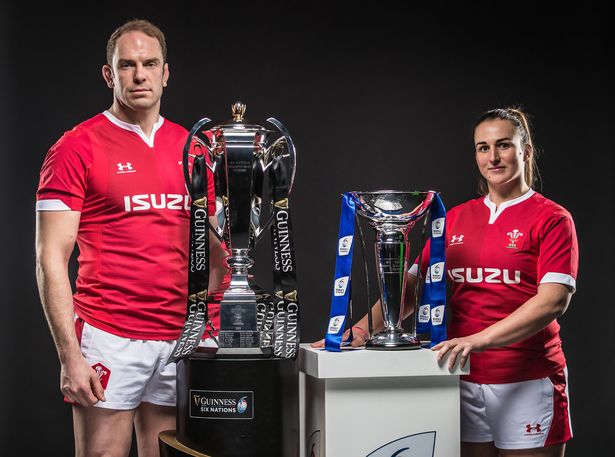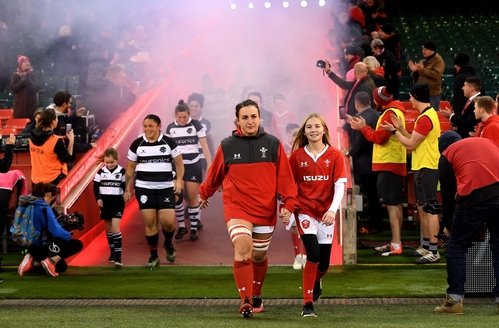BSc Sports Science, Class of 2009.
Leader, Mentor, Coach, Second Row
How did you get started in Rugby?
I spent most weekends during my childhood in Waunarlwydd Rugby Club watching my father coach and my brother play. This is where my love for the game and the people involved started. Unfortunately, there were no local junior girls’ sides, but I was desperate to join Waunarlwydd Ladies. My mother was adamant I had to wait until I was 17 because of the physical element of the game, so the week after my 17th birthday I went training and a few weeks later played my first game. The following season I started University and continued to develop my game and my love for rugby and the friendships it gave me.
You’ve gone from playing for the University Rugby team to be the Head of Rugby for the University. Was the transition from player to coach an easy one?
I found the transition quite an easy one. After graduation, I spent time being the Athletic Union President. I also held different roles within the University before becoming Head of Rugby. All these different experiences have taught me many valuable lessons. I have gained knowledge which has helped me to have the confidence to grow into my current role as Head of Rugby.
You lead the elite performance programmes for both the Ladies and Men’s games at the University. There are not many female coaches in leadership positions, but do you feel that things are starting to change?
Things are absolutely starting to change in the world of rugby. There aren’t many female coaches around but there is most definitely more now than there was 10 years ago. Women’s rugby has recently been the fastest growing sport in the world, and I think that has assisted women to have the confidence to take up coaching roles.
You graduated in 2009 with a degree in Sports Science. Do you get to use your degree in your day job?
Aspects of my Sports Science degree aided me in fulfilling my role to a better quality. I try to keep up to date with new research and initiatives within the field. From my degree, modules such as strength and conditioning, physiology, psychology and biomechanics assist with player development; knowing the students as athletes and the way the body reacts to training load helps improve performance.
You were at University at the same time and are both currently captaining the senior Wales sides. Do you compare notes with Alyn Wyn Jones and wish each other luck for six nations games?
Alun Wyn is a great role model and I have a huge amount of respect for him. He has a highly successful professional rugby career, is a fantastic leader and holds many international records. It’s always nice to chat to Al but it’s generally a quick “hello” and “how are things?” as it’s usually in passing at the National Centre of Excellence in and around training.
It took you a long time to get your first Wales cap. In hindsight, does that experience serve you well with the current players you have under your wing at the University?
I think everything happens for a reason. I had to work extremely hard and be persistent to achieve my dream of wearing the Welsh jersey. These setbacks have also helped me to achieve things beyond my belief. Those experiences that I have been through helps me to understand other people’s journeys. I am also able to share my experiences and offer advice to some of our students who may be in similar situations and have aspirations to become professional rugby players or to represent their countries.


